Vivian Lui, PhD 
B.Sc. (First Class Hons in Biochemistry, Hong Kong)
Ph.D. (Hons in Molecular Pharmacology, Pittsburgh)
Associate Professor
Georgia Cancer Center
Department of Medicine, Medical College of Georgia
Augusta University
We are a Precision Medicine Laboratory which focuses on discovering new precision therapies for head and neck cancer. Head and neck cancer is a very aggressive cancer affecting more than 0.83 million people worldwide annually. Advanced head and neck cancer remains to be incurable and lacks effective therapy. We harness multi-omics data (genomics, transcriptomics, and proteomics) together with clinical data to identify new druggable targets, druggable germline and somatic events for this devastating cancer. We also investigate into the mechanisms of exceptional responders by functional genomics, trying to understand the nature of good drug responses. We develop patient-derived primary cultures, organoids, and patient-derived xenografts with full scale of genomic characterization to facilitate drug development in a Pharmacogenomic manner. Using immunogenomics, we identify genomic events that are associated with T cell and B cell activities in head and neck cancer.
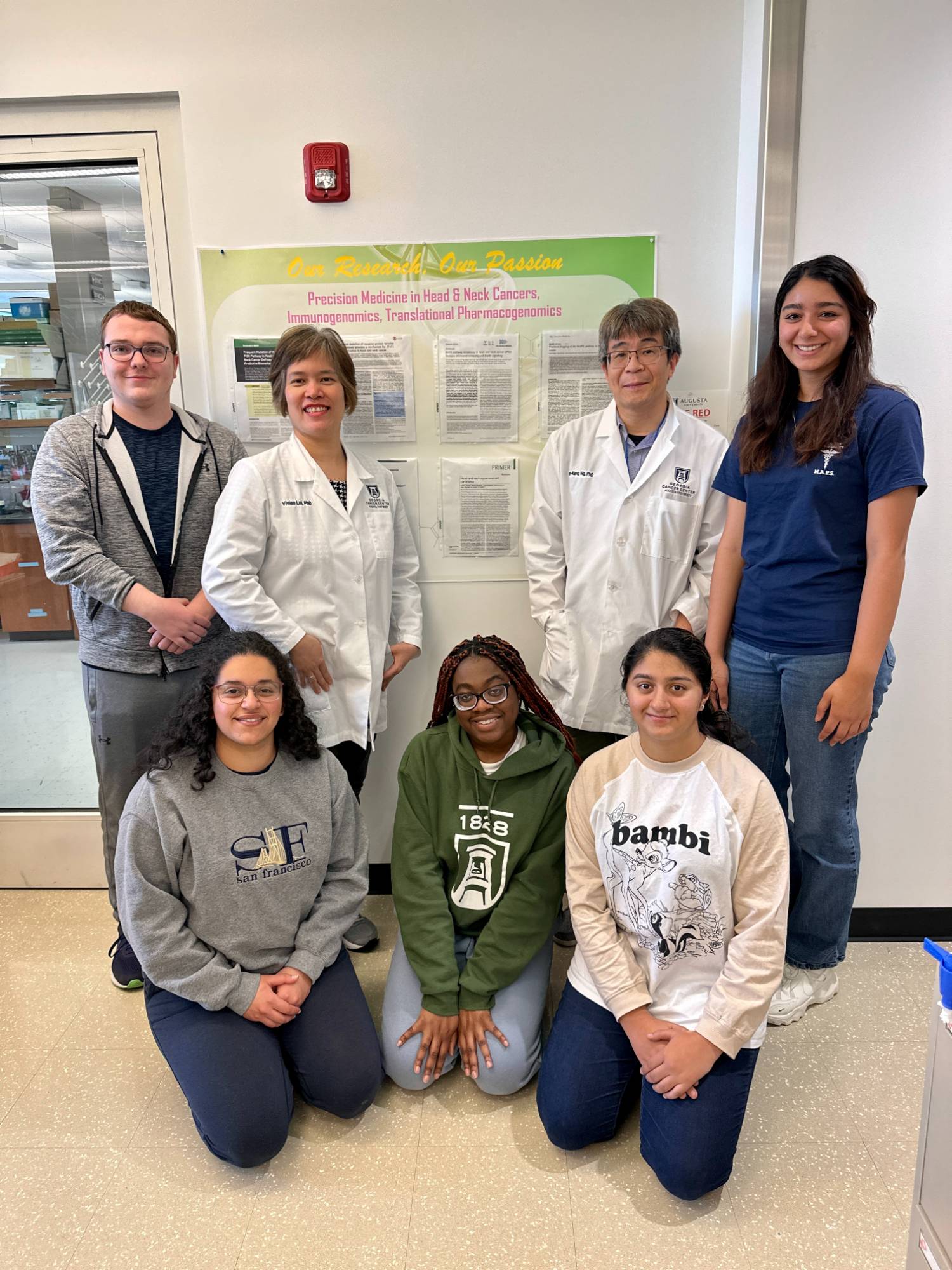
We are interested in hiring a Research Assistant (with laboratory OR with Computer language experiences, including R) to join our Precision Medicine Lab! We love to take in medical students for research, especially those with ENT interests! We need young and energetic people like you to join our Precision Medicine workforce to develop new treatments for cancer patients! For those who are interested in these positions, please contact Dr. Vivian Lui today!
The Vivian Lui Lab
Health Sciences Campus
Georgia Cancer Center - M. Bert Storey Research Building
1410 Laney Walker Blvd., CN-3111, Augusta, GA 30912
(706) 721-5047
Using multi-omics, integrated with patient clinical outcome data, we identify novel cancer therapeutic targets in viral and non-viral-associated head and neck cancers. These include: PIK3CA, MAPK1, CYLD, TRAF3, PTPRT, RAC1, ALK, EGFR-AS1 mutational events, etc. We engage multiple experimental and bioinformatics approaches for drug target discovery.
We performed next-generation sequencing (NGS) at the level of whole-genome and whole-exome, as well as targeted sequencing to examine the presence of drug-sensitizing mutational events in patient tumors and blood DNA. We employ both experimental and bioinformatic approaches to characterize druggable genomes in head and neck cancers. We also examine the signaling and biological mechanisms of exceptionally good drug responses in head and neck cancer patients or their tumors. For immunogenomics, we determine immuno-stimulating genomic events in head and neck cancers using pathway approaches, with concomitant immunogenomic validations in vivo using immunocompetent mice models. We also identify GPR18 as a potential and novel regulator of T cell-B-cell interactions in pan-cancers, including head and neck cancer.
We engineer human-relevant genetic events into head and neck cancer models to determine their drug-sensitizing natures, both in vitro and in vivo. The effects of these mutational events on signaling perturbation, and pathway inhibitor sensitivity are investigated. Mechanisms of drug sensitivity by drug-sensitizing genetic events are further investigated both in vitro and in vivo. These findings can provide strong and reliable scientific evidence for precision medicine development in head and neck cancer.
Importantly, we specialize in developing various patient-derived xenograft models (PDXs) and patient-derived primary cultures (PDCs) with full genomic, transcriptomic, and proteomic characterization. These important patient-derived primary cancer cells, and PDX models allow large-scale drug screening to be performed in conjunction with their genomic profiles. This approach will enable the discovery of novel precision medicines for this devastating cancer.
Ngan HL, Law CH, Choi YCY, Chan JYS, Lui VWY*. Precision Drugging of the MAPK Pathway in Head and Neck Cancer (2022) NPJ Genomic Medicine. 7(1):20.
Liu Z, Cai C, Ma X, Liu J, Chen L, Lui VWY, Cooper GF, Lu X. A Novel Bayesian Framework Infers Driver Activation States and Reveals Pathway-Oriented Molecular Subtypes in Head and Neck Cancer. Cancers (Basel). 2022 Oct 3;14(19):4825.
ORCID: 0000-0001-6918-1573
Google Scholar: https://scholar.google.com/citations?user=761-efYAAAAJ&hl=en
Ngan HL, Law CH, Choi YCY, Chan JYS, Lui VWY*. Precision Drugging of the MAPK Pathway in Head and Neck Cancer (2021, Under Minor Revision) NPJ Genomic Medicine
Johnson D, Burtness B, Leeman C, Lui VW, Bauman J, Grandis JR. Head and Neck Squamous Cell Carcinoma. Nature Reviews Disease Primer (2020); 6(1):92.
Bruce J*, To KF*, Lui VWY*, Chung GTY*, Chan YY, Tsang CM, Yip KY, Ma BBY, Woo JKS, Hui EP, Mak MKF, Lee SD, Chow C, Velapasamy S, Or YYY, Siu PK, El Ghamrasni S, Prokopec S, Wu M, Kwan JSH, Liu Y, Chan JYK, van Hasselt A, Young LS, Dawson CW, Paterson IC, Yap LF, Tsao SW, Liu FF, Chan ATC, Pugh TJ*, Lo KW*. Whole-genome profiling of nasopharyngeal carcinoma reveals viral-host co-operation in inflammatory NF-kB activation and immune escape. Nat Communications (2021) 12 (1): 1-15.
Ngan HL, Liu Y, Fong AY, Poon PHY, Yeung CK, Chan SSM, Lau A, Piao W, Li H, Tse JSW, Lo KW, Chan SM, Su YX, Chan JYK, Lau CW, Mills GB, Grandis JR, Lui VWY. MAPK pathway mutations in head and neck cancer affect immune microenvironments and ErbB3 signaling. Life Sci Alliance. (2020);3(6).
Ngan HL, Poon PHY, Su YX, Chan JYK, Lo KW, Yeung CK, Liu Y, Wong E, Li H, Lau CW, Piao W, Lui VWY. Erlotinib sensitivity of MAPK1p.D321N mutation in head and neck squamous cell carcinoma. NPJ Genom Med. (2020);5:17.
Liu Y, Wang L, Lo KW, Lui VWY. Omics-wide quantitative B-cell infiltration analyses identify GPR18 for human cancer prognosis with superiority over CD20. Commun Biol. (2020);3(1):234.
Ngan HL, Wang L, Lo KW, Lui VWY. Genomic Landscapes of EBV-Associated Nasopharyngeal Carcinoma vs. HPV-Associated Head and Neck Cancer. Cancers (Basel). (2018);10(7).
Li YY*, Chung GT*, Lui VW*, To KF, Ma BB, Chow C, Woo JK, Yip KY, Seo J, Hui EP, Mak MK, Rusan M, Chau NG, Or YY, Law MH, Law PP, Liu ZW, Ngan HL, Hau PM, Verhoeft KR, Poon PH, Yoo SK, Shin JY, Lee SD, Lun SW, Jia L, Chan AW, Chan JY, Lai PB, Fung CY, Hung ST, Wang L, Chang AM, Chiosea SI, Hedberg ML, Tsao SW, van Hasselt AC, Chan AT, Grandis JR, Hammerman PS, Lo KW. Exome and genome sequencing of nasopharynx cancer identifies NF-kappaB pathway activating mutations. Nat Commun. (2017);8:14121. PubMed PMID: 28098136 (*equal contributions)
Van Allen EM*, Lui VW*, Egloff AM, Goetz EM, Li H, Johnson JT, Duvvuri U, Bauman JE, Stransky N, Zeng Y, Gilbert BR, Pendleton KP, Wang L, Chiosea S, Sougnez C, Wagle N, Zhang F, Du Y, Close D, Johnston PA, McKenna A, Carter SL, Golub TR, Getz G, Mills GB, Garraway LA, Grandis JR. Genomic Correlate of Exceptional Erlotinib Response in Head and Neck Squamous Cell Carcinoma. JAMA Oncol. (2015);1(2):238-44.
Lui VW, Hedberg ML, Li H, Vangara BS, Pendleton K, Zeng Y, Lu Y, Zhang Q, Du Y, Gilbert BR, Freilino M, Sauerwein S, Peyser ND, Xiao D, Diergaarde B, Wang L, Chiosea S, Seethala R, Johnson JT, Kim S, Duvvuri U, Ferris RL, Romkes M, Nukui T, Kwok-Shing Ng P, Garraway LA, Hammerman PS, Mills GB, Grandis JR. Frequent mutation of the PI3K pathway in head and neck cancer defines predictive biomarkers. Cancer Discovery. (2013);3(7):761-9.
Lui VW*, Peyser ND*, Ng PK, Hritz J, Zeng Y, Lu Y, Li H, Wang L, Gilbert BR, General IJ, Bahar I, Ju Z, Wang Z, Pendleton KP, Xiao X, Du Y, Vries JK, Hammerman PS, Garraway LA, Mills GB, Johnson DE, Grandis JR. Frequent mutation of receptor protein tyrosine phosphatases provides a mechanism for STAT3 hyperactivation in head and neck cancer. Proc Natl Acad Sci U S A. (2014);111(3):1114-9.
Lui VW, He Y, Falo L, Huang L. Systemic administration of naked DNA encoding interleukin 12 for the treatment of human papillomavirus DNA-positive tumor. Hum Gene Ther. (2002);13(2):177-85.

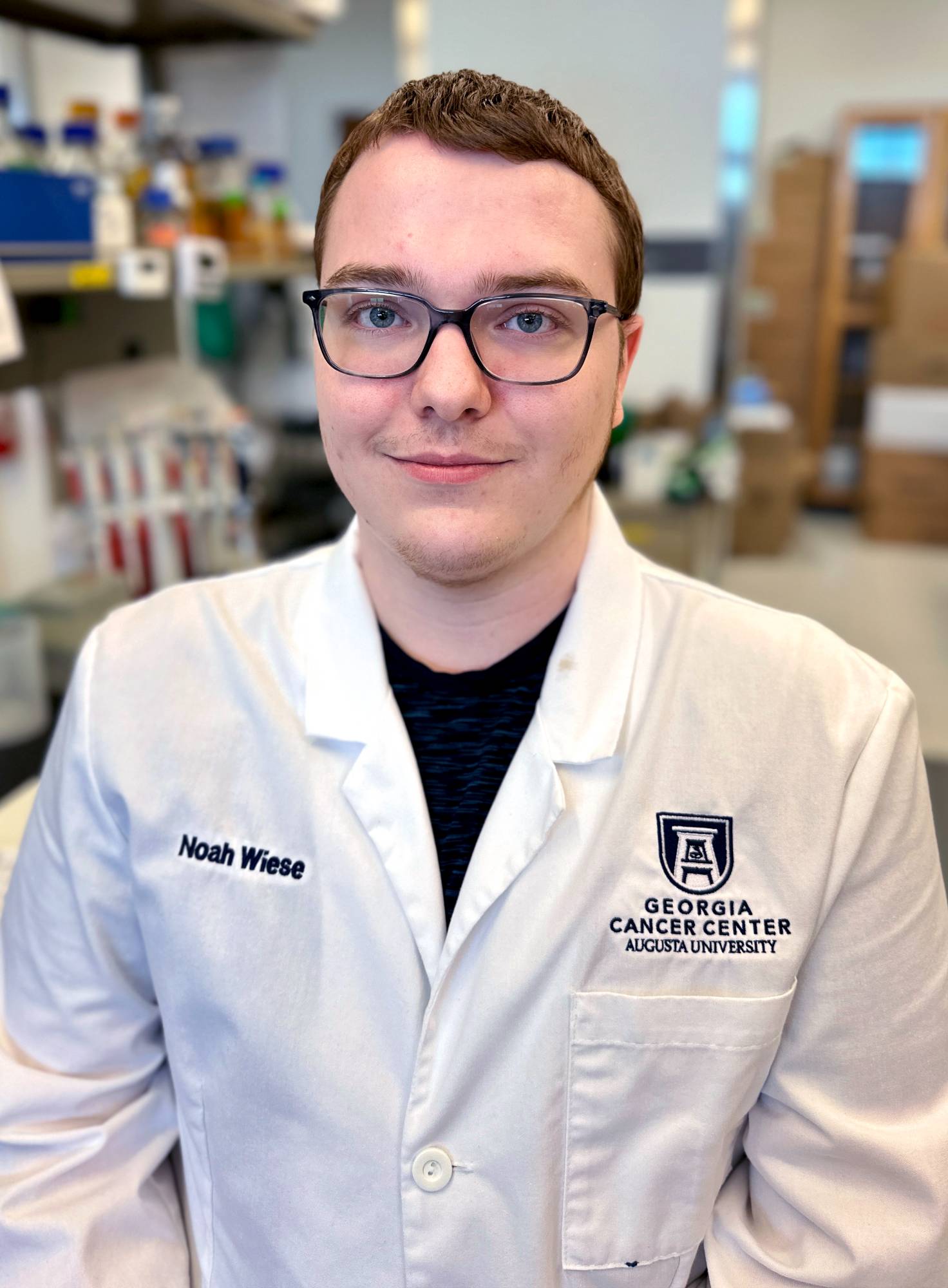

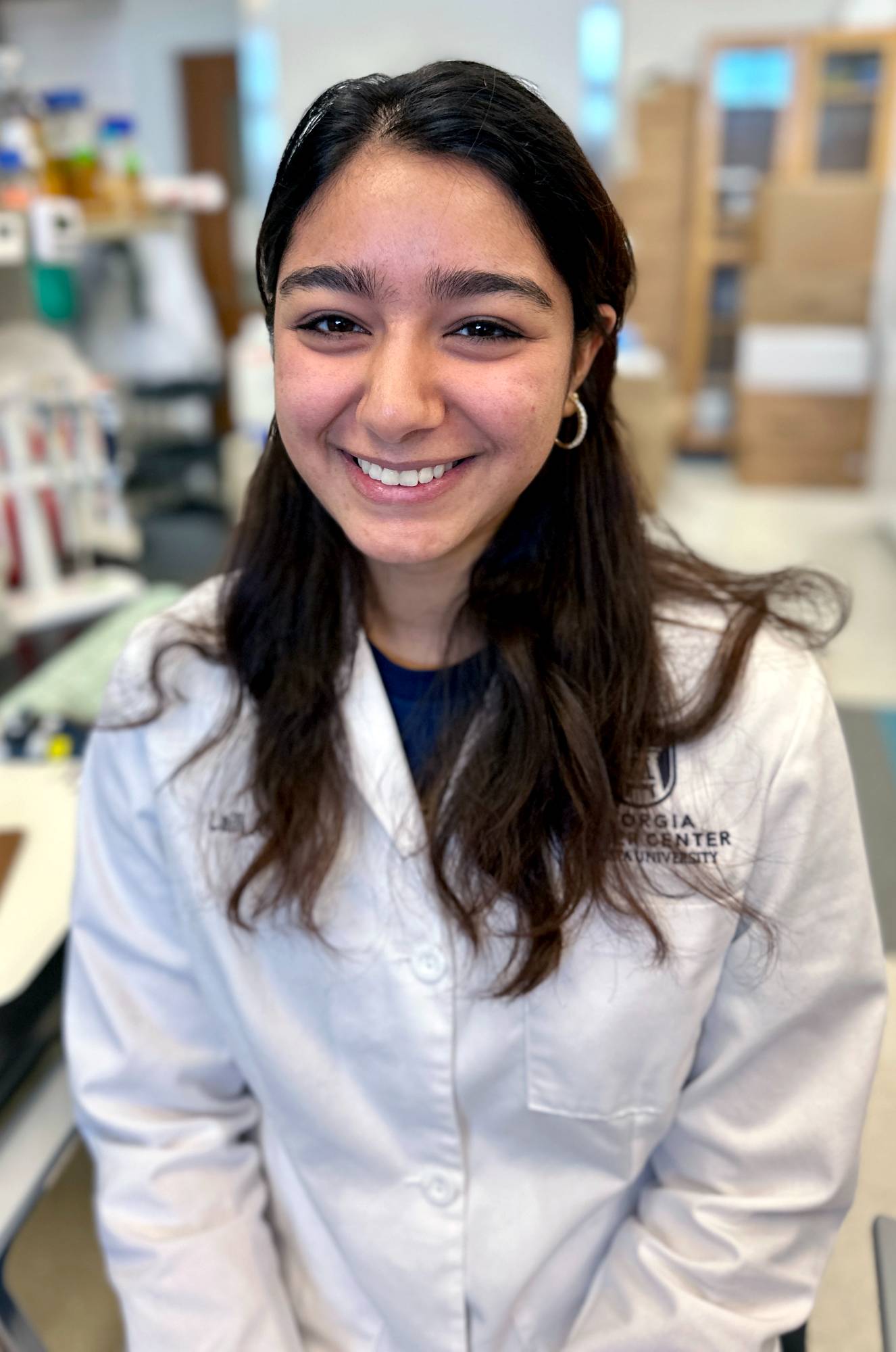
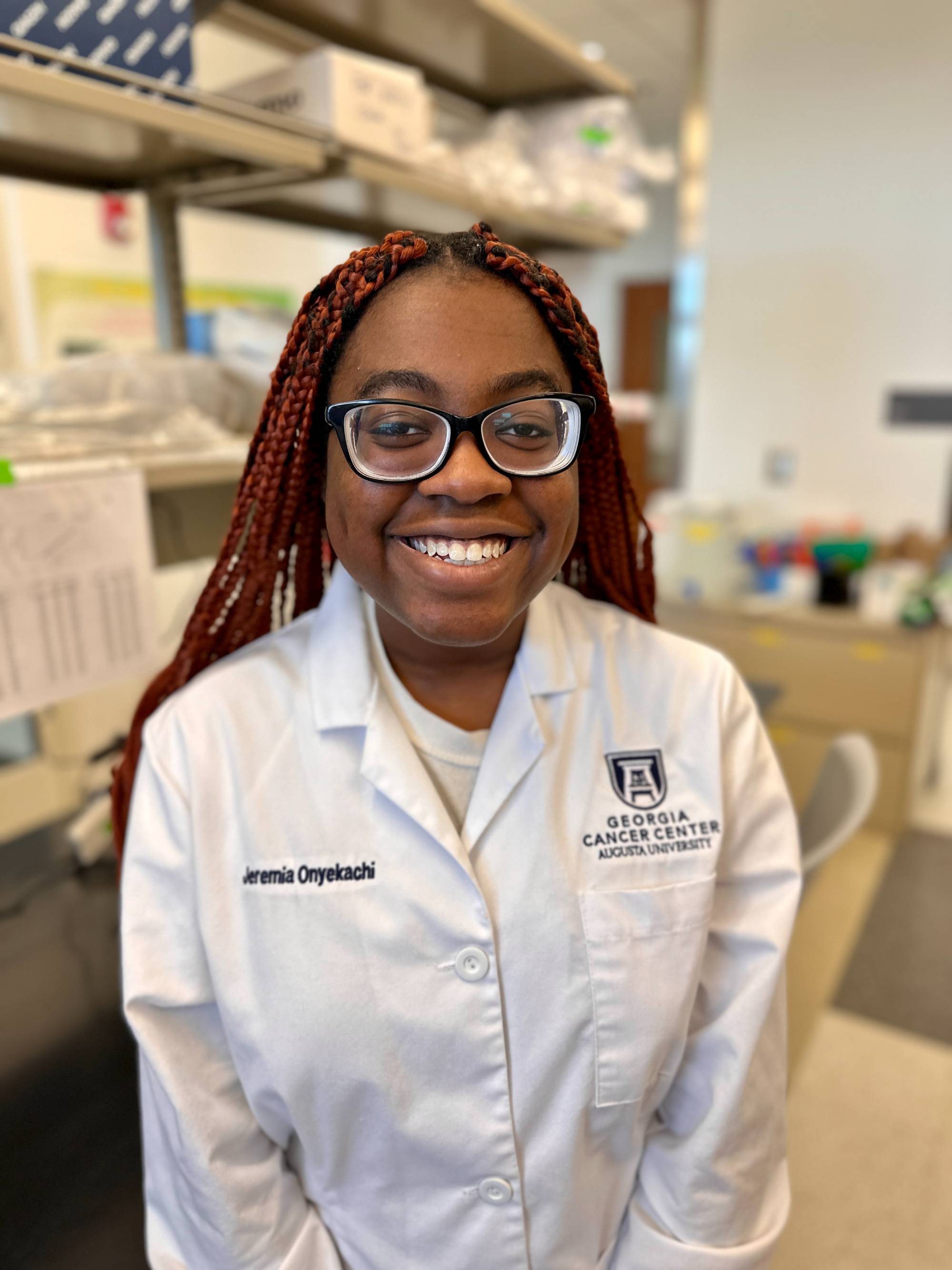

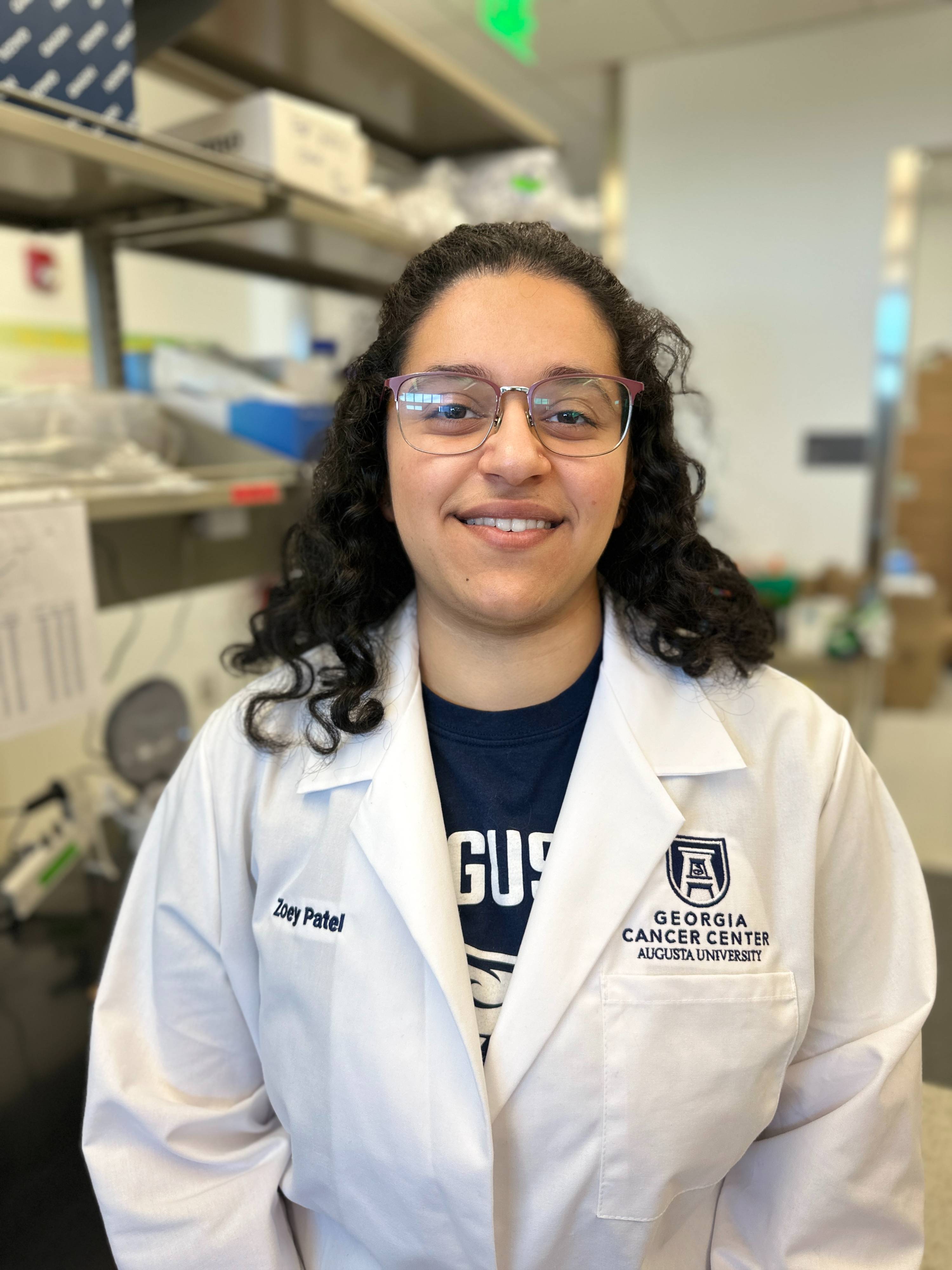


Vivian Lui, PhD

Yuen-Keng Ng, PhD

Zoey Patel

Noah Wiese

Jeremia Onyekachi

Laili Afzali
About one-fifth of often deadly head and neck cancers harbor genetic mutations in a pathway that is key to normal cell growth, and scientists report those mutations, which enable abnormal cancer cell growth, can also make the cancer vulnerable. Read More >>